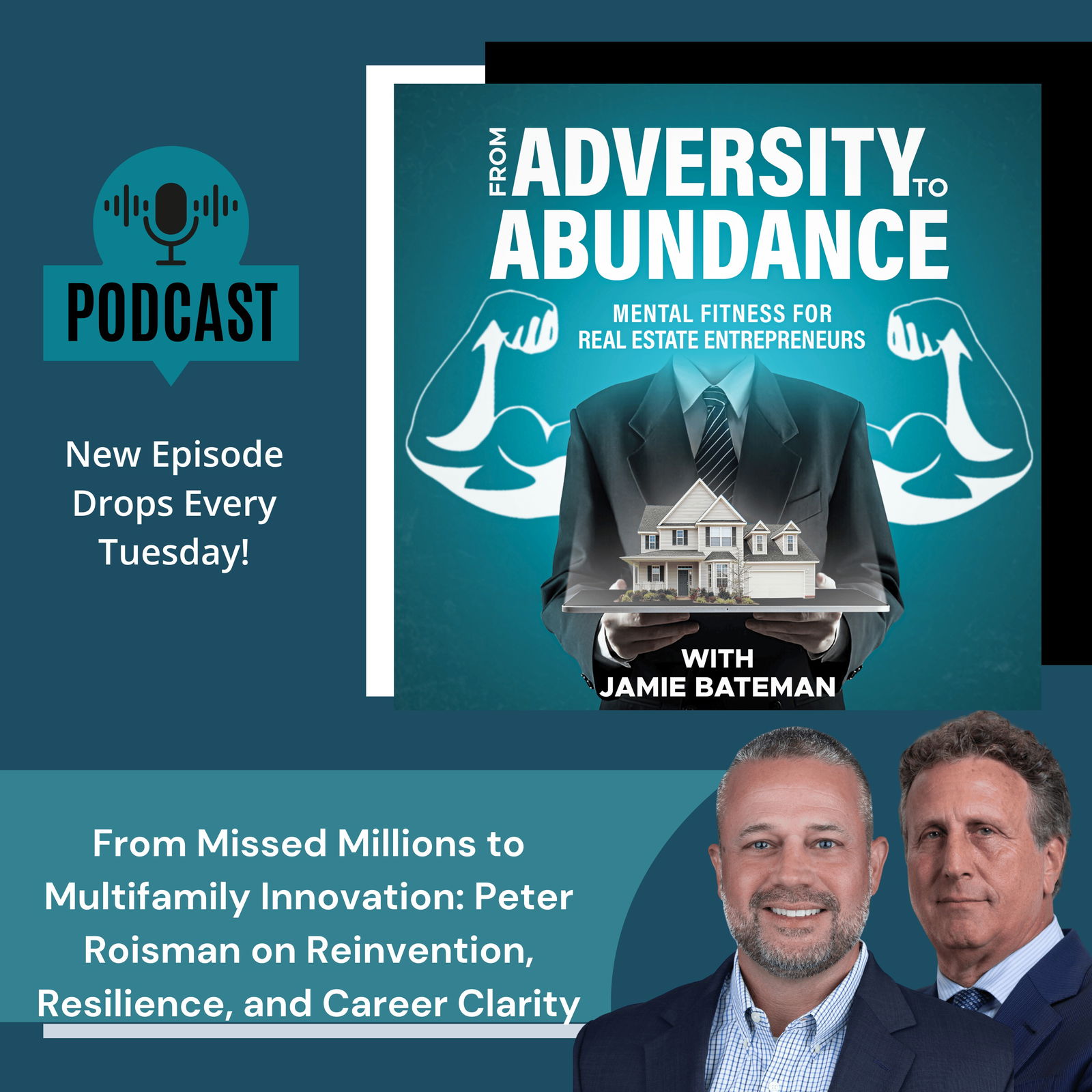In this episode of From Adversity to Abundance, host Jamie Bateman sits down with Peter Roisman, cofounding principal, president, and CEO of Rev—a company reshaping how multifamily leasing is done. With over 30 years of entrepreneurial experience across the sports, medical, and real estate sectors, Peter brings sharp insights and battle-tested wisdom to the table.
Peter opens up about a major inflection point in his journey: a promising business deal that, if successful, could have earned him several million dollars. Instead, the deal fell apart, leaving him not only with a $400,000 loss but also the painful weight of what could have been. Rather than letting that moment define him, Peter used the experience to pivot, rebuild, and ultimately find greater clarity in his entrepreneurial path.
This candid conversation goes beyond real estate. Peter explores how life unfolds in seasons, why timing matters, and how to make intentional choices—whether you're launching a business, investing, or simply figuring out what’s next. He breaks down the Rev model, offers career advice grounded in decades of experience, and shares how to align passion, skill, and market demand in a way that leads to meaningful success.
Guest Introduction: Peter Roisman
Peter Roisman is the cofounding principal, president, and CEO of Rev, an innovative multifamily leasing company. Over the past three decades, he’s launched and led businesses in sports, medicine, and real estate. His story is one of resilience, strategic pivots, and reimagining what success looks like across different seasons of life and work.
Episode Highlights:- The Deal That Got Away – How Peter missed out on a multimillion-dollar exit and faced a $400K loss instead.
- Redefining Leasing – The origin story of Rev and how it separates leasing from property management.
- Career Crossroads – Insights on choosing between passion, skillset, and what the market will actually pay for.
- Life in Seasons – Why timing and flexibility are essential to long-term success.
- Lessons Across Industries – What Peter took from sports, medicine, and real estate to lead with purpose.
- Missing out on a big win can hit harder than a financial loss—but it can also spark a powerful pivot.
- Real estate success isn’t just about deals—it’s about systems, service models, and leadership.
- Your ideal career path often lives at the intersection of passion, talent, and demand.
- Life has seasons—embracing that can help you know when to push forward and when to pivot.
- Failure doesn’t mean the end. It can be the nudge toward your most meaningful work.
Resources:
Connect with Peter:
Website:https://www.rev-leasing.com/
LinkednIn:https://www.linkedin.com/in/peterroisman/
Facebook:https://www.facebook.com/revleasingmanagement
Instagram:https://www.instagram.com/revmultifamilycompany/
Integrity Income Fund:
https://labradorlending.com/investors/passive-investors/
Labrador Mentorship:
labradorlending.com/investors/active-investors/
—
Haven Financial Services:
Learn more: jamie.myfinancialhaven.com/
—
Purchase Jamie’s Book: www.amazon.com/dp/B0CGTWJY1D?ref_=pe_3052080_397514860
—
Leave us a REVIEW: podcasts.apple.com/us/podcast/from-adversity-to-abundance/id1618672867?mt=2&ls=1
www.adversity2abundance.com/reviews/new/
Connect with us:
Website: www.adversity2abundance.com
Facebook: https://www.facebook.com/labradorlending/
Instagram: https://www.instagram.com/labradorlendingllc/
LinkedIn https://www.linkedin.com/company/labrador-lending/?viewAsMember=true
Youtube: https://www.youtube.com/channel/UChYrpCUlqFYLy4HngRrmU9Q
Connect with Jamie:
LinkedIn: www.linkedin.com/in/jamie-bateman-5359a811/
Twitter: twitter.com/batemanjames
